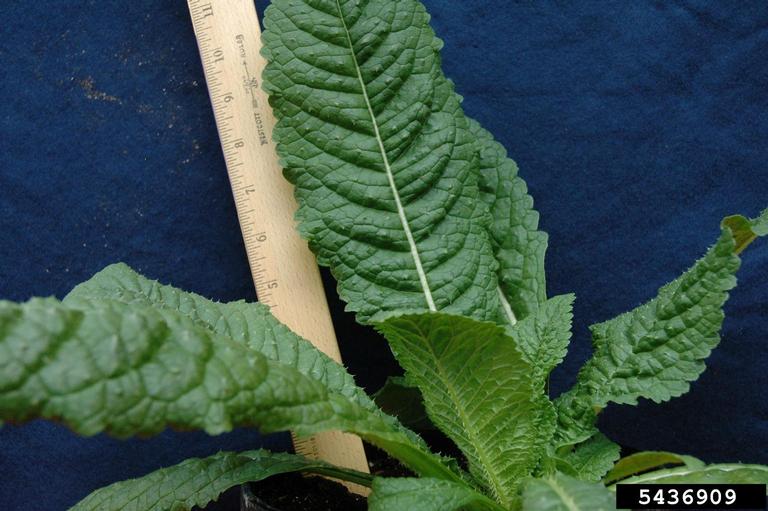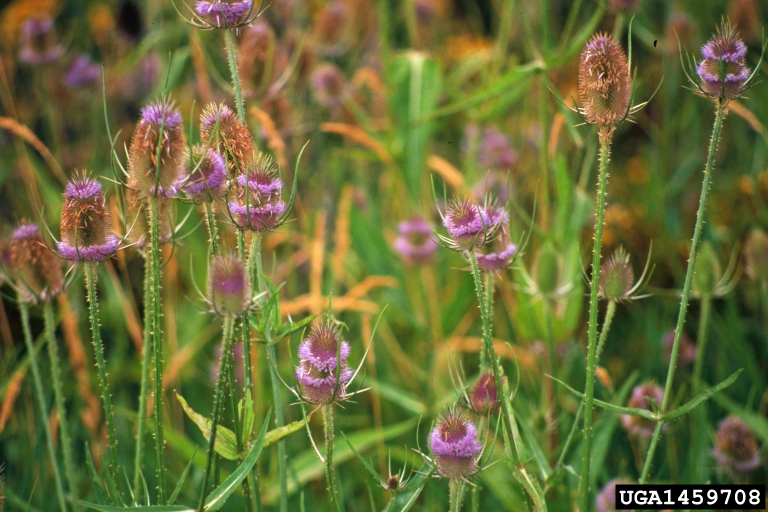Teasel

Teasel
(Dipsacus fullonum)
Priority: - Eradicate
Tags: Agricultural
Identification and Reproduction
Identification:
- Teasel is a biennial flowering plant that grows almost 2 m tall.
- Will grow from a rosette its first and even in its second year. Rosette and basal leaves appear wrinkled and have scalloped edges. They are spiny on their underside.
- Leaves on the flower stem are prickly along the middle of the underside. They are long and pointed with a distinct white midvein.
- Flowering stems are ridged and prickly near the upper stem.
- Flowerheads are eggshapped and flowers range from purple to white. They are surrounded by sparse, narrow prickly bracts that form around the seedheads. Flowers will bloom in rows.
Reproduction:
- Reproduction is solely by seed.
- A single seedhead can produce 850 seeds, with each plant bearing 1 to 40 seedheads, resulting in as many as 34,000 seeds per plant.
- Due to its unique flowerhead this plant is popular in floral arrangements.
Habitat & Ecology
- Teasel is often found in pastures, meadows, roadsides and other disturbed sites.
- They thrive on exposed, sunny sites that occassionally experience wet soils.
- Foliage will die after flowering and seedset.
Impacts
Social:
- This plant is prickly and bitter to taste so is unpalatable to livestock.
- It also takes up space, reducing livestock forage availability.
- In cases that it forms dense colonies it can restrict recreational access.
Ecological:
- Can overtake native grass species.
Management
Mechanical/Manual Control:
- Once flowering stalks are present sever the stem right below ground level.
- Plants can also be removed by digging up the roots.
- Repeat cuttings of the flowering stem will help eradicate populations.
- Refrain from mowing the plants as root crown fragments can disperse and resprout.
- Bag and dispose of mature seedheads to prevent regrowth.
- Clean all equipment and clothing before leaving the infested site.
Resources
The BC Invasive Plant Alert factsheet - Teasel is has provincial level information.
For more information check out the King County datasheet on Common teasel identification and control.
Header photo (Radio Tonreg).




